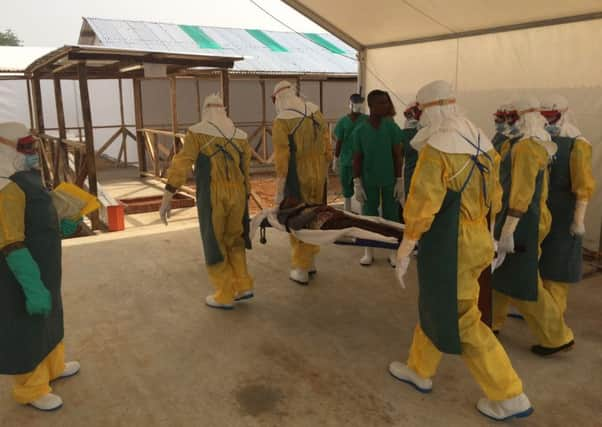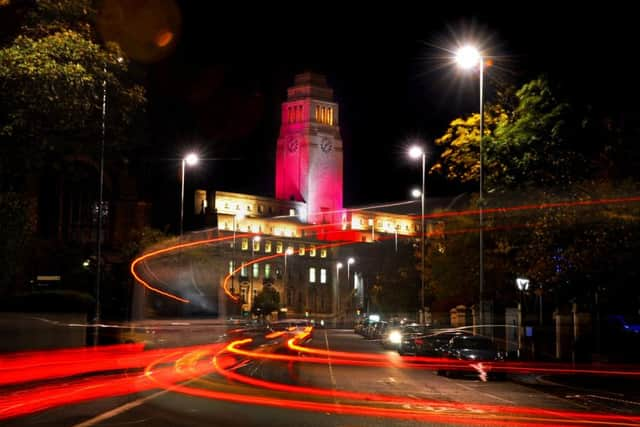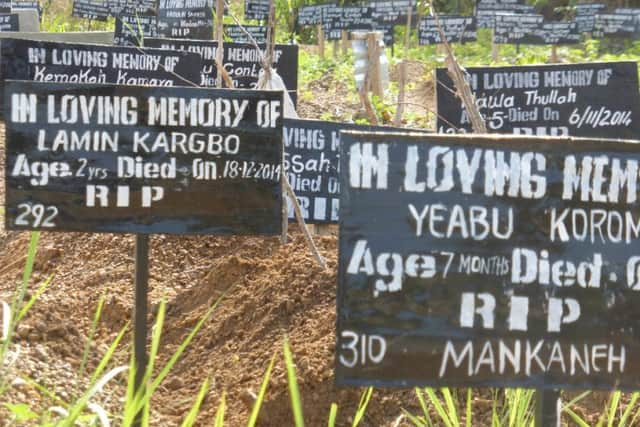Ground-breaking computer drug research at Leeds university aims to find Ebola cure


Having secured a £200,000 Wellcome Trust grant, the University of Leeds’ schools of chemistry and molecular and cellular biology are hoping to create effective anti-viral drugs for those who have already been infected.
Several Ebola vaccines for people at risk of contracting the deadly disease are in development but no effective anti-viral drugs for Ebola sufferers have yet been created.
Advertisement
Hide AdAdvertisement
Hide AdInstead of the traditional approach of biologically testing hundreds of drug compounds in a laboratory, the researchers will run computer software loaded with a library of around one million compounds and match them against the atomic structure of the Ebola virus’ key proteins.


The second part of the project will test the most promising compounds to see if they inhibit the growth and spread of Ebola-like molecules.
Professor Colin Fishwick, professor of medicinal chemistry at the university, will lead the computer-based phase of the study.
“The use of the computer hugely increases our ability to identify the right compounds,” he said. “It is a bit like trying to crack a password by brute force: we are able to run through hundreds of thousands of drug compound structures to see if they fit into key ‘holes’ we have identified in the structure of the virus.
Advertisement
Hide AdAdvertisement
Hide Ad“However, our computers are not dealing with strings of characters but minutely detailed 3D maps of molecules.”


More than 11,000 people have died from Ebola since the epidemic erupted in West Africa in 2014 – a six-fold increase of victims since its discovery in 1976.
Although West African countries including Guinea, Liberia and Sierra Leone have declared the epidemic over, some scientists say there is a risk the virus may become an ever-present disease in West African society.
Professor Mark Harris, professor of virology at the University of Leeds, is leading the project.
Advertisement
Hide AdAdvertisement
Hide AdHe said: “There are quite a few vaccines in various stages of development at the moment and some seem to be very promising. However, even if we do have a very successful vaccine for Ebola, we are going to need anti-virals.


“Getting enough vaccines to people in the communities most at risk from Ebola will be very difficult indeed. We already struggle with established vaccines like polio in some of these areas.”
The study will focus on two key components of the Ebola virus, its NP and VP30 proteins, which are both are known to be critical to the virus’ replication and growth.
All of the researchers involved are members of The Astbury Centre for Structural Molecular Biology, which brings together scientists from across the university in a bid to further the understanding of the molecular basis of life.
The research is being funded by a Wellcome Trust Pathfinder Award, which will fund two post-doctoral researchers to work on the computer and biological aspects over 18 months.